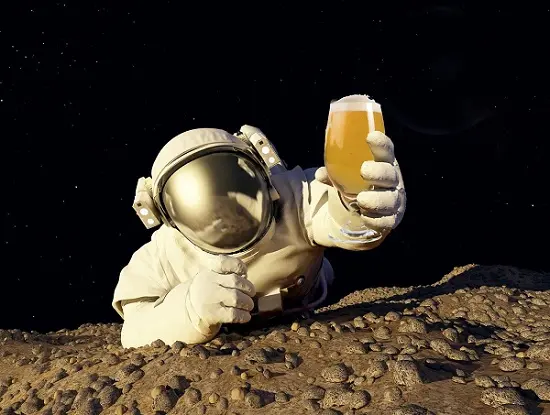What happens when beer is brewed in the unique and challenging environment of space? The process of fermentation, perfected over centuries on Earth, encounters new variables in microgravity, prompting fascinating questions about the future of brewing beyond our planet.
Beer has been an integral part of human culture for thousands of years, serving as a key element in social, religious, and economic contexts across many civilizations. Now, as we venture into space exploration, the possibility of brewing beer in space presents an exciting new frontier.
A recent study by researchers at the University of Florida (UF) explores how beer yeast might behave in space, offering insights that could have significant implications not just for brewing, but for a wide range of fermentation-based industries. Published in the journal Beverages, this pioneering research brings together experts from UF’s Food Science and Human Nutrition Department and the Horticultural Sciences Department to delve into the possibilities of space fermentation.
Fermentation is crucial for creating a variety of products, including bread, yogurt, kombucha, biofuels, and pharmaceuticals. The researchers chose beer yeast for their study because of its long history and well-documented fermentation process.
Andrew MacIntosh, a UF/IFAS associate professor of food science, emphasized the importance of studying fermentation under microgravity as humanity continues its exploration of space. “We are absolutely going to be conducting fermentations under microgravity in the future,” MacIntosh said. “It’s essential that we understand the potential outcomes now so we can determine which processes to prioritize and how to adapt them.”
The study, led by undergraduate researcher Pedro Fernandez Mendoza, involved fermenting wort made from barley grown in Live Oak, Florida. The yeast used for brewing, Saccharomyces pastorianus, was divided into six samples, three of which were fermented under simulated microgravity using a clinostat.
Contrary to initial concerns, the researchers found that microgravity did not reduce yeast cell viability. In fact, the fermentation rate increased, likely due to the constant suspension of yeast cells, which maximized nutrient availability. However, yeast exposed to microgravity produced fewer esters—compounds that contribute to beer’s flavor—suggesting that space-brewed beer might have a different taste profile, potentially leading to a higher-quality product.
The reduction in ester production could be linked to lower expression of a specific yeast gene involved in this process, indicating that fermentation in space might require adjustments to achieve the desired flavor profile.
“This study is just the beginning,” MacIntosh said, noting that the research marks the first step in exploring how microgravity could impact everyday products. Brewing beer dates back to ancient civilizations, with evidence of production in Mesopotamia, Egypt, and China. Throughout history, beer has been more than just a beverage—it has served as a staple food source and a method for preserving grains.
As humanity looks toward space exploration and the potential for off-Earth colonies, understanding how traditional processes like fermentation will adapt to new environments is crucial. This study on beer yeast offers a glimpse into how age-old practices might evolve in the future.
While this study focused on beer yeast, its findings could have broader implications for other industries that rely on fermentation. Pharmaceuticals and biofuels, for example, depend on similar processes, and understanding how microgravity affects fermentation could lead to new methods for producing essential medicines or alternative energy sources in space.
Additionally, as space tourism and colonization progress, the ability to produce familiar products like beer and fermented foods could play a vital role in maintaining morale and quality of life for those living beyond Earth. The UF research not only advances our understanding of beer fermentation in space but also paves the way for future innovations across various industries.


